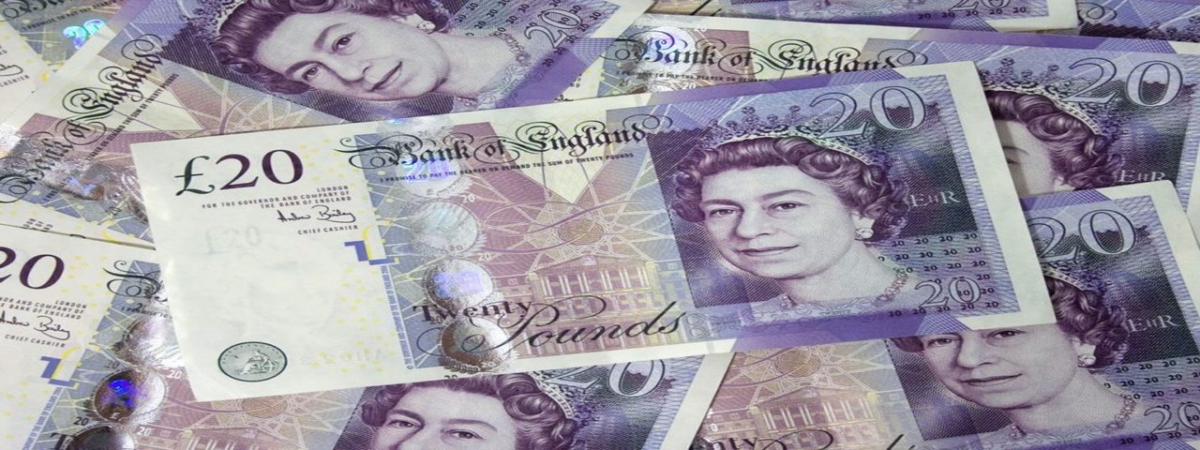In defence of ticket touts
SUGGESTED



This is what touts are. They buy tickets to events at the face price, either directly from the venue or promoter, who frequently sell a significant proportion of their tickets directly to touts, or from individuals who have bought them from the venue in the usual way. This is a voluntary transaction on both sides. They then resell the tickets at a higher price to willing buyers, again a completely voluntary transaction. So what could possibly be wrong with this?
Many of the complaints simply amount to people saying they had to pay more than the face price for a ticket and would prefer to not have to do this. This is natural. However the real alternative is not simply getting the ticket at its face value. It is rather trying to get it in a mad rush on Ticketmaster and most probably not getting it at all. What is it that touts (or secondary markets in tickets) actually do?
The actual situation is this. There is a fixed supply of a good (seats) and potentially high demand. The difficulty is how to find out who is willing to pay most for the seats and ensure that they get them. One way would be to have an auction where people (or more likely their agents) bid for the tickets. The other way is to have middlemen—touts —who buy the tickets (often from the original promoters or venues) and then offer them for resale to people who are prepared to pay more for them. Alternatively you have a secondary market where people who have been fortunate enough to get a ticket can resell it to people who value it more than they do.
This benefits both sides. The ticket originators avoid the risk they would run if they set the price themselves, overestimated demand, and made a loss. They also avoid the cost of running an auction. The ultimate buyers do not have to do what they would otherwise do and spend a lot of (valuable) time either standing in line or seeking out willing sellers. Provided they are prepared and able to pay enough, they can be sure of getting the seats. In the process they evaluate just how much they are prepared to give up in other goods to get the ticket.
In other words, touts – or secondary markets in tickets – perform a vital economic function, namely that of putting a scarce good into the hands of those who value it most and so will (most probably) get the greatest benefit from it. This is one of the basic, core functions of markets. So why do people feel such an intense gut level hostility to it? There are basically two reasons.
The first is the perception that this is not fair because it means that the good (tickets) gets into the hands of those with the most means as well as the strongest desire. The problem is that there is no alternative in a world of scarcity that is also not fair. If the tickets were allocated by queueing then they would end up in the hands of those who were able to spend valuable time queueing up (which would exclude those with childcare commitments for example). If they were allocated by a lottery then some would go to people with only a marginal interest while others with a passionate interest would miss out.
The second is the idea that value comes from work or effort and the act of trading something does not add or create value and that therefore middlemen are merely parasites. This is simply wrong. Work in itself does not create value. It is perfectly possible to work all day to make something, but if nobody wants it enough to exchange something for it, it has no value. Value as a social phenomenon is created not by production but by exchange. The value of something for a person is defined by what other things they are prepared to give up in exchange for it. When a good is transferred from one person to another the receiver (like their trading partner) has more value than when they started.
With the election coming up all kinds of economic illiteracy are being given an airing. One of the most egregious is the idea floated by the government of making it a criminal offence to resell tickets to events for more than the original sale price, i.e. for a profit. This strikes at the very heart of a functioning market. What middlemen do is to align supply and demand by connecting suppliers and demanders. In doing this, they make both parties better off, and channel resources to where they are most in demand and therefore producing the greatest utility. Time for everyone with economic knowledge to stand up for touts!
8 thoughts on “In defence of ticket touts”
Comments are closed.





The proposal to criminalise touting represents a volte-face for the Tories, who used to have a bit more sense on this issue. Governments seem to find ever more reasons to jail people, despite our prisons being a disgrace to a civilised nation, to chase a quickly-forgotten headline. On this occasion I’m rather at a loss to see whose vote is going to be influenced and I’m not sure this measure will be particularly ‘popular’. I anyway prefer the term ‘do-it-yourself economics’, an expression introduced by David Henderson in his Reith lectures. It conveys the ineptitude of this type of analysis, which leads to even bigger disasters than my botched attempts at putting up shelves.
I remember once, long ago, taking my sister to the cinema. We wanted to see Gone With The Wind at the Empire, Leicester Square. Outside the cinema we were offered two £1 tickets for £4 each. (That shows how long ago it was!) My sister was a bit horrified at us having to pay £4 for a ticket with a face value of £1 (though I was paying). In response I launched into a spirited defence of ticket touts, along the same lines as Steve Davies above, but more briefly and less eloquently. Not only was my sister amazed, but so was the tout, to be informed what a valuable public service he was providing!
I wonder if technology will kill off ticket touts – it’s increasingly easy to organise auctions for tickets so that buyers and sellers should be able to find a market price more easily. Instead of first come first serve, sellers can then sell to the highest bidder and cut out the tout meaning more profit for sellers and more value for buyers. But no need or reason to ban touts!
So, kidnappers are doing people a favour because if they didn’t pay ransom, they wouldn’t value that(kidnapped) person?
This is why air should be privatised, and people charged to breathe. It’s all part of how markets should operate,
This is a kind of pettifogging argument dressed up as rationality. On several grounds. The good in question is not the ticket itself, but rather a performance at a date in the future. In the case of artists with international reputations often the quite distant future. The ticket is symbolic, and is something like money. The customer does not benefit from the good until the day of performance. Whereas the tout is already sitting on the money.
The popular feeling is not so much of fraudulence, but something more like black-marketeering, gouging, skimming off, racketeering. The touts are not the middle men in respect of the product (ie the performance) but only in respect of the ticket.
There is a fundamental inequity between the customer, and the tout. The touts use software, not available to ordinary consumers, to harvest large numbers of tickets, this undermines the potential equality and time saving of digital sales.
Re the point of protecting the originator against the possibility of loss. The tickets can be priced high, and in the event of unsatisfactory demand, the price can be reduced, or the event cancelled or held at a smaller cheaper venue. Surely it is in the interest of the venue, the promoter, and the artist to seek the highest ticket prices. This seems to be a more satisfactory solution for everyone except the touts.
Is it not perverse that venues and promoters are less sure of the value of the artist than touts, and that they( the originators ) are in essence driven by fear of loss to hand over some of the profits.
Further thoughts. One hears in connection with some recent high-blood-pressure issues that company directors have a legal obligation to maximize the return to shareholders. I don’t know if something similar applies to venues, and artists’ management, but, the fact that tickets are issued at a price that is scalpable is evidence of dereliction of common sense duty.
There is also an incentive for the potentially scalped to be scalpers.
If I get there first and buy a ticket because you couldn’t be bothered to queue or book early then tough.
Nobody criticises tesco for charging more than they paid.
I have bought the ticket I can therefore do what I like with it.
Terms and conditions on tickets are unenforceable and probably illegal.
I wish that a secondary ticket company would take a few of the theatre companies to court.
As somebody who is looking to work within the music industry, ticket touts make an impact to how the industry works. Right now, more than 75% of an artists income comes from live performances, and their tours. Touts have to buy the tickets at face value so they still have their income stream, but if the artist is playing big arenas or even stadiums and the fans aren’t there because the show sold out because touts have bought up the tickets and sell them at a ridiculous price, there are going to be empty seats leading to their next tour to be in smaller venues, resulting in a smaller income.
I understand Neil’s point of getting up to book early or to queue, but some fans don’t have the money the day they go on sale, i know i have had to buy them at a later date before because I’m a student and don’t have money at times when i need it.
However, i do understand that touting is an income stream for some people, as there is no age restrictions, but if you get touts that are selling them up to £50 more than face value that isn’t to bad, consumers will still pay that price. It’s when touters sell tickets for £200+ above face value.
There are pros and cons for ticket touters, there is no wrong or right answer. There is legislation slowly coming into place to protect the consumers and eventually it could be made illegal like it is within football, and Olympic games.